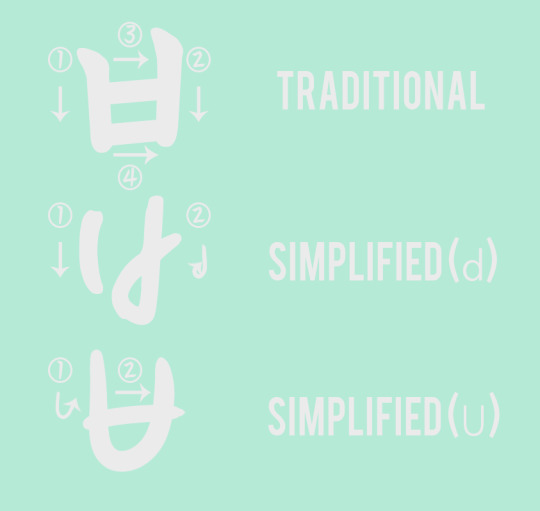Text
(BlackPink) In Your Area! / ~세권
One phrase that you may not come across unless you live in Korea is ~세권. The most common term used with this is 역세권. It’s hard to directly translate this, but roughly means “Near a train station” - generally within a 5-10 minute range.
Ex:
“역세권 아파트다 트리플 역세권이다”
“It’s an apartment with stations in the neighborhood. It’s a triple station area”
Let’s break this down:
역 (驛) - (Train / subway) station
세 (勢) - Influence
권 (圈) - Range, Radius
Directly translated it’d be something like “The influence / strength of being in range of a station” So having a “역세권 아파트” is a positive feature for your apartment. This also can be used for other convenient or positive places within a neighborhood.
스세권 (스 = 스타벅스) - Starbucks in the neighborhood
편세권 (편 = 편의점) - Convenience store in the neighborhood
슬세권 (슬 = 슬리퍼) - Being close enough to a good place (like cafe or 맛집) that you could wear your slippers
Example:
“와 동네 진짜 좋네~ 역세권인데 또 스세권인 아파트네!”
“Wow, this neighborhood is really great~ It’s not only close to the station, but also right near a Starbucks too”
For fun try thinking about what kind of area of influence your apartment or house has.
#korean#한국어#studyblr#한국어 공부#한국어배우기#study korean#learning korean#learn korean#korean language#korean slang#slang#linguistics#korea#south korea#kpop#studying korean#study#studying
22 notes
·
View notes
Text
Korean Slang을 좀치네요~
A casual phrase that was been around for a while
뭐뭐.. “좀 하다”
“Done a bit of this / Dabbled in / Done this a bit in my day”
Simply put, it is a playful way of saying someone has done something quite a bit or is pretty good at something. Which is why it’s generally used with the ~네(요) or 거든(요) grammar endings.
For example
“야 너 롤 해??”
“Do you play LoL (League of Legends)?”
“응, 나 좀 하지”
“Yeah, I play a bit”
But this has changed from 하다 (To do) to 치다 (To play a sport or instrument) but still can be used in everyday context.
So instead of saying
“너 베이킹 잘 하네!”
“You’re pretty good at baking!”
You can say
“와아, 이 빵 잘 구웠네. 너 좀 치네”
“Woah, you baked this bread so well. Guess you’re pretty good at baking”
As always, it’s not a direct translation, but you get the gist of it.
이제 구독자분들도 한국어를 좀 치시네요~
(Now you (the readers) know a bit of Korean too)
#korean#한국어#한국어 공부#studyblr#한국어배우기#learning korean#learn korean#slang#korean language#korean slang#language#kpop#korean vocabulary#south korea#seoul
222 notes
·
View notes
Text
T발 너 C야?
In Korea, personality types have always been a talking point. In recent years MBTI has taken over, but before that it was blood-types. In social situations people would ask each other their MBTI, or made to guess the other persons, and this spread to the internet as well. Memes of the different types were popularized and have kept evolving.
One that was incredibly popular was
“너 T야?”
"Are you a T?"
T being “Thinkers / 사고형”, which is the opposite of F which are “Feelers / 감정형” Which came from when someone was being too rational or unsympathetic.
This evolved into
“야 너 T야?”
“Oi, are you a T?” (야 is an very informal way of calling to someone.. oi seems more of a correct translation than Hey!)
“응 나 T야, 프리티!” “큐티!”
“Yeah, I am a T, Pretty” "Cutie"

Then in a more crude way, people would say
“씨발, 너 T야?”
“Fuck, are you a T?”
Because of the similarity of 씨(C) and 티 (T) people would jumble it around and say
“T발, 너 C야?”
Which is just the modern way of referencing “너 T야?”, so the next time someone gives you a T kind of response, hit them with the “T발, 너 C야?”
#한국어#korean#studyblr#한국어 공부#한국어배우기#english#slang#korean slang#kpo#k#learn korean#korean language#learning korean
79 notes
·
View notes
Text
Quick Korean: Vibes
간지 - Style / Cool / Charisma
This term comes from the Japanese term Kanji (感じ), which generally is translated as feeling / sensation / impression. The Korean term is used only in terms of positive feelings, so it’s similar to “vibes” or “mood” in English.
“선글라스(를) 새로 샀나봐, 완전 간지 난다”
“Looks like you bought some new sunglasses, they look great.”
“요즘은 자전거 스탠드(를) 안 단대, 스탠드(가) 있는 게 노간지래”
“Nobody uses kickstands on bikes anymore, I heard they aren’t cool.”
노간지 > No 간지 is similar to “Cheugy”
75 notes
·
View notes
Text
Royally Pissed (Korean Slang)
A recent slang term that’s swept the internet is 킹받다.
It was started by a Twitch streamer / webtoon artist called 침책맨. Since it’s internet slang, it’s not a BAD word, but is definitely not a formal term.
킹받다 – Extremely frustrating / Pissed off.
This comes from the meme of replacing the first syllable of a word with 킹 (King) and 갓 (God) aka “the highest form of something”.
인정 (Acknowledge / Agree ) > 킹정
합리적 의심 (Reasonable Suspicion) > 킹리적 갓심
EXAMPLE:
“티모 너무 잘 해서 킹받네” – “This Teemo is too good, I’m tilted”

#korean#korea#learn korean#learning#studyblr#langblr#vocab#korean vocab#slang#korean slang#한국어#한국어공부중#한국어 배우기#한국#킹받네#study korean#language#한글#공부#한국어 공부#한국어 공부하자
103 notes
·
View notes
Text
HOW TO HANJA (Same Hanja, Different Words!)
One thing you may notice when learning a language, is how many words there are they are seemingly similar. You may look up 5 words and they all pretty much come out to be the same thing in English, but of course there are nuances! These may, or may not, be easily distinguishable if you know a fluent speaker, but if you are just hanging out with a dictionary.. it can be incredibly frustrating. Let’s take a look! (Finding other words than share the same Hanja can also help you understand it even better)
For example:
허하다 - Permit, consent, approve
허락하다 - Permit, consent
허가하다 - Permit, authorize, approve
Not super helpful right? But if you look at the Hanja..
허하다 = 許 + 하다
허락하다 = 許 + 諾 + 하다
허가하다 = 許 + 可 + 하다
Still not helpful? Let’s google + 한자 and you’ll generally find this:
훈 - Korean Translation
음 - Sound
부수 - Extracted portion (Important Hanja that makes up a portion)
획수 - Stroke #
For Example:
諾
훈: 대답하다, 허락하다
음: 낙 / 락 [see prev. post about changing sounds]
부수: 言 (말씀 언) 7획
획수: 총 16획
(The 부수 is important cause it can clarify a little more! This one is spoken / language related)
In short:
허 / 許
Meaning: Permit, approve
가 / 可
Meaning: 옳다 - Good, proper
So 허하다 is a general permit (often formal), 허락 is more of a response from someone so allow, and 허가하다 is more approve.
Give it a try for yourself! (Find the Hanja yourself for even better practice, and repost with them!)
특허 (特許) - Patent
특기 (特技) - Specialty, special ability
특성 (特性) - Characteristic
특수 (特殊) - Special
특정 (特定) - Particular, specific
Alright, I know I’ve been doing a lot of Hanja lately and not a lot of grammar.. BUT I promise this I’ll do something different next post. This information has helped me learn Korean much faster because it’s personally much easier to learn fundamentally rather than flat out memorizing. As always, nothing is EXACTLY translated because language BE LIKE THAT, but if you notice any blatant errors please let me know!
New post coming soon :)
Cheat Sheet:
특 / 特 - Special
기 / 技 - Skill, artisan
성 / 性 - Nature, character
수 / 殊 - Different
정 / 定 - Decide, choose
#korean#korean language#korean vocabulary#korean vocab#hangul#learn korean#learning korean#study korean#studying korean#studywithme#topik#topikII#study topik#studyblr#langblr#language#korean langblr#studyspo#study inspo#한국어#한국말#한글#한자#한국어능력시험#한국어 공부하기#한국어 공부#공부#공부하기#같이 공부하자#한국어 배우기
55 notes
·
View notes
Text
Hanja Tips! (두음법칙)
As I study hanja more and more one thing has continuously confused me, why do certain characters have two sounds? Now you may know how Korean has pronunciation rules, but there’s actually a formal written one too, this is called 두음법칙.
If the ㄴ or ㄹ is the first character at the start of a word, it actually changes the ㄴ and ㄹ to ㅇ.
Let’s look at some examples:
If ㄹ comes before ㅏ / ㅐ / ㅗ / ㅚ / ㅜ / ㅡ
ㄹ > ㄴ
로(老) + 인(人) = 로인 > 노인
락(樂) + (원)園 = 락원 > 낙원
If ㄴ comes before ㅕ / ㅛ / ㅠ / ㅣ
ㄴ > ㅇ
녀(女) + 자(子) = 녀자 > 여자
년(年) + 세(歲) = 년세 > 연세
Therefore if ㄹ comes before ㅑ / ㅕ / ㅛ / ㅠ / ㅣ
ㄹ > ㄴ > ㅇ
력(力) + 량(量) = 력량 > 녕량 > 역량
량(良) + 심(心) = 량심 > 냠심 > 양심
This is used for Hanja so it doesn’t affect for loanwords / slang
리얼, 라멘
There is more to the rule that affects the second character in a word, but we’ll get to that later!
In the mean time, I hope this helps!
If you have questions or suggestions for comments please let me know!
#korean#korean language#korean vocabulary#korean vocab#hangeul#hangul#learn korean#learning korean#study korean#studying korean#topik#topik study#studywithme#studyblr#langblr#korean langblr#studyspo#study inspo#한국어#한국어 능력시험#한국말#한자#한글#한국어 공부하기#공부#한국어 공부#공부하기#같이 공부하자#한국어 배우기#thekimchibear
65 notes
·
View notes
Text
Hanja 하자
So if you are like me, you may not be great at learning Hanja due to the actual characters themselves. 質 - It’s can be a bit intimidating. Especially when [ 火 / 禍 / 化 / 畵 ] all can be a different 화. So instead of looking at the actual Chinese character, we’ll look at some important various meanings of hanja for intermediate Korean. This type of pattern learning will help you be able to deconstruct words with some context.
Here are some hanja that have frequently appeared for me recently:
~질 (質)
Meaning: Quality
Temper, Personal Nature - 성질
Characteristic - 특질
Geological Features - 지질
Illness - 병질
~력 (力)
Meaning: Strength or ability
Vitality, Vigor - 활력
Main Force / Strength - 주력
Frictional Force - 마찰력
Memory - 기억력 바보력
~화 (化)
Meaning: Conversion
Eng. Suffixes: -ization
Industrialization - 산업화
Commercialization - 상업화
Change, Alteration - 변화
적 (的)
Meaning: Disposition, Function, Connection
Eng Suffixes: -ical or -ive
Positive - 긍정적
Negative - 부정적
Passive - 소극적
Aggressive - 공격적
Psychological - 심리적
Physical - 신체적
These are all SUFFIXES so if you see them at the END of a word - for example: 화요일 vs 상업화 - these are obviously different 화s. But if you have the actual Chinese character you can check in a dictionary!
Hopefully this helps and let me know your favorite Hanja!
#한국어#한국말#한자#한글#한국어 공부하기#한국어배우기#한국어 공부#공부하기#공부중#같이 공부하자#한국어 배우기#korea#korean#korean language#language#korean vocab#korean vocabulary#learn korean#hangul#hanja#learning korean#study korean#studywithme#studyblr#langblr#korean langblr#studyspo#study inspo
138 notes
·
View notes
Text
2000+ Korean Manga/Manhwa Words
ONGOING POST:
One thing that has really helped me with learning Korean has been reading manga & manhwa. So I decided to rank most of the things I’ve fully read in terms of difficulty, and include general topics for the story / vocabulary. Difficulty will vary per person due to what they are familiar with, generally “Daily Conversation” tended to be easier, where as “Supernatural” stories were much harder.
LINK: https://tinyurl.com/TKBWordLists
There are 3 types of word lists,
1) FULL List: Includes every word that I looked up in order of how it showed up in the story.
2) INCOMPLETE List: Same as Full List, but I am still updating it.
3) NECESSARY List: Just has the most important words that repeatedly came up through the story. Ideally these will all be eventually updated to full lists, but this may take a while!
THESE RATINGS ARE ALL BASED ON AN INTERMEDIATE LEVEL.
SOME MANGA ARE “MATURE”.
Now this is an ongoing post so it will be updated with new series and word lists, but I wanted to get this started now. There are still many left blank as my note for certain series are still in the US, and I did my best to make sure that there are no typos, but if you happen to find any or have suggestions on what to add please let me know!
#korean#korea#한국어#한국어수업#한국어 동#한국어를#한국어 공부#공부#한국어공부#learning korean#learning#studying#studyblr#language#languages#manga#manhwa
87 notes
·
View notes
Text
The Korean Karen? (Korean Slang)
Slang is a funny thing because it can come from just about anywhere. Some of them are completely arbitrary, but others require a little cultural context. Two recent terms came from actual people, so I guess this is the Korean equivalent of “being a Karen.”
The story of two people and two 도시락 (premade-lunchboxes),
김혜자 who is a beloved elderly star with a sweet image released a 도시락, which ended up being a great value and good quality.
김창열 who is a notorious bad boy released a 도시락, which was overpriced, stingy and poor quality.
혜자다 / 혜자롭다 - Great, good, generous.
Ex.
“거기 맛집이야, 되게 혜자야”
“That place is a good restaurant, tasty and a good value.”
창렬이다 / 창렬스럽다 - Bad, overpriced, stingy.
(창열 changed to 창렬 due to pronunciation)
Ex.
“그거 완전 창렬이야, 사지마.”
“That’s completely overpriced and bad, don’t buy it.”
These turned into opposite adjectives, so you can imagine their respective reactions. Though I feel a bit bad for 창열 it is important to learn these just in case you do hear em!
As always make sure to follow for more new content and check out any old posts as well!
56 notes
·
View notes
Text
현타 x Hyunta
Today’s term is 현타, which comes from “현자 타임” AND “현실 자각 타임”.
현자 = Sage
타임 = Time (just borrowed from English)
오다 = To come / arrive
현실 = Reality
자각 – Self-awareness
The original meaning of the term was a moment of clarity and/or realization, where you can see things for how they truly are. This term stems from.. well.. intercourse. The closest term we have is “post-coital tristesse”, which actually refers to the emotions or sadness following sex. In a little more crude terms “post-nut clarity.” Due to the connotations this term was not often said aloud.
HOWEVER, in recent years this term has grown in popularity and has become a more commonly used phrase. Generally being used for reality checks or moments of clarity (changing the 현자 타임 to 현실 자각 타임).
Example of Current Usage:
“덕질하다 보면 현타올 때가 있잖아”
“You know that harsh reality check that eventually comes when you’re fan-boying/girling”
“일할 때 현타 오는 순간”
“The reality check that comes when you’re working”
62 notes
·
View notes
Text
ㅂ Korean Handwriting Tip
Korean handwriting can be tricky, but let’s get you writing a bit quicker (and maybe even neater). One tricky one is ㅂ, especially if you’re writing it in the traditional stroke order it may come out like an ugly #. When writing this quickly many Koreans will write this as I+d or U with a line through it. (You may noticed it in the font on my last post!)

Another great example is the well known hangover 배 juice, or as some people referred to it as “IdH”

If you missed my post on ㄹ, make sure to check that out. As always, more content coming soon so make sure to follow the blog (also I really appreciate it!!)
138 notes
·
View notes
Text
눈칫밥 먹다

One term that doesn’t translate exactly is 눈치, which is somewhere between common sense and situational awareness. There are many forms and uses of 눈치, but ‘눈칫밥 먹다' is a fun term (linguistically).
밥 먹다 - Eating a meal (or specifically rice)
And everyone knows how uncomfortable it is to eat while minding someone else..
So here we are at 눈칫밥 먹다, which is the discomfort while living and constantly paying attention to others. (눈치보면서 불편하게 생활하다)
Another word that is closely related to this is:
얹혀살다 - Live off of someone else.
Example:
“마침 집에서 눈칫밥 먹고 있던 나는 좋은 기회다 싶어 그 다음주에 짐을 꾸려 상경했다" - 타인은 지옥이다 (만화, 2화)
If you would like a separate post on 눈치 please let me know, and remember to follow for more Korean content!
90 notes
·
View notes
Text
Taking a Stand: BLM
With all that is happening in The United States and the world it is extremely important that we use this momentum to push forward while educating ourselves and each other.
Whether you want to use these words to help participate in protests or gather attention via media, please do whatever you can. Many people are also calling upon large Korean entertainment companies to comment due to the importance of Black culture to K-pop and K-Hip Hop.
시위(하다) - To protest / demonstrate
편견 - Prejudice
인종 차별 - Racism
행진(하다) - To march
불평등 - Inequality
갈등 - Conflict
존중 - Respect
자유 - Freedom
견디다 - Endure, bear
신념 - Belief
저항하다 - Resist, oppose
대항하다 - Resist, fight against
체포하다 - To arrest
지지하다 - To support
동참하다 - To join / take part in
흑인의 생명도 소중하다 – Black Lives Matter (literally translated: are precious)
If you would like to donate to relevant organizations, here are a few for the BLM movement:
National Bail Fund Network: A complete directory of over sixty community bail and bond funds across the country that help pay bail for low-income individuals who can’t afford it. This page also takes donations and splits them between 38 community funds across the country.
NAACP Legal Defense and Educational Fund, Inc: The NAACP Legal Defense and Educational Fund supports racial justice through advocacy, litigation, and education.
Communities Against Police Brutality: CUAPB provides assistance to individuals and families dealing with the effects of police brutality.
Equal Justice Initiative: EJI provides legal representation to prisoners who may have been wrongly convicted of crimes, poor prisoners without effective representation, and others who may have been denied a fair trial.
I acknowledge the protests that are going in Hong Kong, and believe them to be equally pressing, however I did not want to stick them together and to belittle the importance of either. If you would like me to create a post w/ Hong Kong links and information, I would be more than happy to and would love any recommendations (I am just more educated on this issue as I am from the US.)
#blm#black lives matter#korean#korea#한국어#한국어 배우기#한국#protest#vocabulary#education#educateyourself#learn#studyblr#donate
61 notes
·
View notes
Text
YouTube Learn-a-long #1
Learning Korean through media can been a huge help, but replaying videos to see the subtitles & captions can be a bit tiring. To help with this I created PDFs of subtitles that people can read and follow along with while watching YouTube videos.
This is the first of many to come, but if you have any suggestions on ways to improve or things you would like to see / learn a bit more about please send me a message!
If you want to just show a bit of support, leave a comment on the video and let us know it helped!
Free Download Link:
https://tinyurl.com/TKBLearnalong1
Video Link:
https://youtu.be/5qD0FhV2Qyk
Here’s a sample.

#korean#learning korean#한국어#한국어 배우기#한국어 공부하기#공부#한국어선생님#learning#studyblr#vocabulary#studysheet#korea#food
61 notes
·
View notes
Text
ㄹ Korean Handwriting Tip
We all know how hard writing the perfect ㄹ can be (especially 를!), but one thing you may or may not know is how it is commonly quickly written, which is closer to Z. Below is a quick example of how my hand writing changed (I know still not very pretty, but it’s legible!.. right?)

I’d like to post more short posts / tips as well since longer grammar posts can take some time to create so any feedback is appreciated!
고맙습니다!
#한국어#한국#한국어를#한국어 연습#한국어 배우기#한국어 공부하기#한국어공부중#penmanship#handwriting#korean#learning#learn korean#korea#hangeul#한글
73 notes
·
View notes
Text
Suffixes That Suffice. (둥이, 쟁이, 보)
One fun to learn language is to make it your own, in a way. Learning things like “중독 - addict”, I would have fun practicing by attaching random things to it. There are plenty of these suffixes that are commonly in Korean, and you probably have heard them in some form before (쟁이 is probably the most common). This can be a great way to learn words and understand them.
Here are some suffixes, and commonly used versions:
~둥이 - Child, Kid
늦둥이 - Baby of the family (last child born much later than siblings)
쌍둥이 - Twins
귀염둥이 - Cutie pie
사랑둥이 - Darling
바람둥이 - Cheater
~쟁이 - Monger, Person that does something a lot (negative connotation)
겁쟁이 - Fearmonger (Coward)
술쟁이 - Alcohol-monger (Drunkard)
고집쟁이 - Stubborn Person (Pigheaded)
떼쟁이 - Unreasonable Person
거짓말쟁이 - Liar
욕심쟁이 - Greedy Person
~보 - Holic
잠만보 - Snorlax / Sleepaholic
먹보 - Foodaholic (Glutton)
일름보 - Snitch, teacher’s pet
If you look at the first word most are self explanatory, 늦다 > 늦 = Late, 겁 = Fear, but some origins are a little less straightforward because of how they’ve evolved (open for interpretation!)
잠만보 is the Pokémon Snorlax (잠 = sleep + 많다 > 많 > 만 or 만 = only, unsure!)
일름보 seemingly is from how kids pronounce it (이르다 > 이름 > 일름 = snitch)
Though it might not make 100% sense, or be widely used, making terms up can be a great way to learn and even make a language feel a bit more like your own. For instance, I was called a “떡보” because I love 떡, which was a bit silly, but fun to say.
So get out there, and try adding your own flare to the language!
Feel free to follow for more posts coming soon.
#korean#learnkorean#learning korean#한국어#한국어공부#한국어배우기#한국어공부중#한국어를#studyblr#learning#language#kimchibear
343 notes
·
View notes